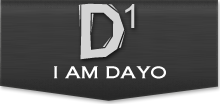Understanding DIDs
Category: Learn what I learnt
27 Apr 10
Well, after numerous meetings and talks about DIDs and definitely a lot of illustrations and use cases, it would have seemed that I knew what DIDs were, but I didn’t. Suddenly, I was given the task to follow up on some providers and the time to really understand what DIDs were had come.
DID is a feature offered by telephone companies for use with their customers’ private branch exchange (PBX) systems. In a DID service, the telephone company provides one or more trunk lines to the customer for connection to the customer’s PBX and allocates a range of telephone numbers to this line (or group of lines) and forwards all calls to such numbers via the trunk. As calls are presented to the PBX, the dialed destination number (DNIS) is transmitted, usually partially (e.g., last four digits), so that the PBX can route the call directly to the desired telephone extension within the organization without the need for an operator or attendant. The service allows direct inward call routing to each extension while maintaining only a limited number of subscriber lines to satisfy the average concurrent usage of the customer.
Direct Inward Dialing service has similar relevance for Voice over Internet Protocol (VoIP) communications. To reach users with VoIP phones, DID numbers are assigned to a communications gateway connected by a trunk to the PSTN network and the VoIP network. The gateway routes and translates calls between the two networks for the VoIP user. Calls originating in the VoIP network will appear to users on the PSTN as originating from one of the assigned DID numbers.
A DID is a real phone number, one that can be called from anyplace in the world. Some IPTSPs also have internal numbers (e.g. FWD). An internal number is a number that only works in the network of your IPTSP. To better illustrate the difference, here’s an example:
You buy a GiCELL line (or phone). If Zain were an IPTSP offering just private numbers, you’d only be able to call other GiCELL subscribers. You can’t call anybody signed up with Zain, MTN, etc. You can also not call abroad. Now suppose GiCELL connects their network with the one from MTN. GiCELL subscribers can now call MTN subscribers by dialing a prefix and the number of the MTN subscriber (e.g. 803 + MTN number), and MTN subscribers can call GiCELL subscribers by dialling 075 + GiCELL mobile number. You can see this in the IPTSP world where two or more IPTSPs partner e.g. some IPTSPs allow their subscribers to call FWD.
Now enter DIDs: If GiCELL decides to connect their network to the national telephony network (which in turn has international uplinks), people from all over can call you. If you have a DID, people will dial that DID number and be directly connected to you. If you do not have a DID, people wishing to call you will have to call the GiCELL operator, and ask to be connected with your Verizon extension (or there’s an automated attendant). In the traditional telephony world, if you sign up with GiCELL, MTN, Zain, etc, you get a DID. In the business world, your company might decide to only get a limited number of DIDs (each number costs a certain amount per month), so if your wife wants to call you, she’ll have to call the company front desk, and ask the receptionist to speak to you (extension 1234 or whatnot). If you have a DID at work, your wife can call you directly. In the IPTSP world, IPTSPs buy DID numbers from exchanges all over the country, then route those to their subscribers.. that’s how you can sit in New York and get a Lagos number. If somebody calls that number, it will be routed to the PSTN gateway of your IPTSP, and from there it gets to you via IP link.
There are IPTSPs that do not even have private numbers, but when calling somebody signed up with the same IPTSP (and he might have a number in another part of the country.. it doesn’t matter), will still not cost you anything. That’s because when you dial the number, your IPTSP will look at it, and then decide where the call has to go. In the consumer VoIP space, people can get single DID numbers near friends and family, so the friends and family can dial a local number (pay local rates) and the call is routed via VoIP anywhere globally. In Nigeria, the calling party pays for the call, so VoIP providers will offer PSTN DID’s to VoIP for free, since they are paid (a really small amount per call) for each call they terminate and convert to VoIP.
If it’s a number that belongs to the provider, it will be routed internally, if it’s another number, it goes through the PSTN gateway. As an end user, if you want VoIP with a DID number, just sign up with a provider that offers one.. that’s all it takes. For you as a user, there’s no difference whatsoever.
Finally, you live in Lagos and your family lives in the United Kingdom. You can get a virtual phone number (DID number) from the UK and your friends and family can call you on your UK virtual (DID) number and you receive the calls via VoIP to your Lagos phone. You are only charged a fixed monthly fee for this service so you can receive as many calls as you want for a fixed price. And all your friends, family, and business contacts can call you for the price of a local call!
PS: DID and IDD are not the same thing…stay tuned for my next post, I might just tell you the difference.


